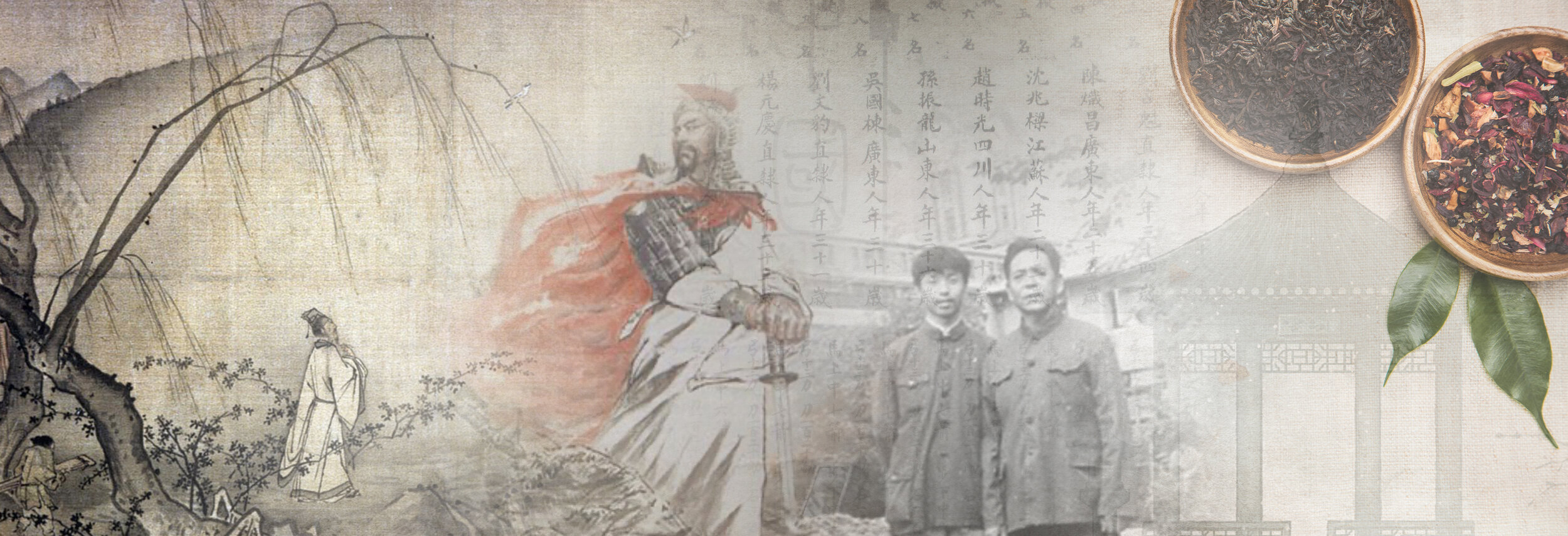
Lineage
Lineage—in ancient Chinese culture is a treasured and honored tradition. It includes not only a long line of family and teachers—but the values instilled, lessons taught, and honored traditions passed along to future generations. This might include things like healing, philosophy, and martial art training. Below is some of Dr. Yang Yang’s lineage.
T’ai Chi Qigong Grandmasters
Grand Masters who taught or have influenced Dr. Yang’s practice
Chen Fake, 陈发科 ,1887–1957
Hu Yuezhen, 胡躍贞,1897年-1973年
Chen Zhaopi, 陈照丕, 1893一1972
Chen Zhaokui, 陈照奎,1928-1981
Gu Liuxin, 顾留馨, 1908~1990
Feng Zhiqiang, 冯志强, 1928-2012
Chen Qingzhou, 陈庆州, 1934年-2015年
Yuan Shiming, 原士明,1920-2002
Wu Xiubao, 吴秀宝,1934-2009
Zhang Xintang, 张喜堂,1944-present.
Chinese Philosophy
Cultivating a peaceful, happy, and fulfilling life through understanding
Transform pain to lasting tranquility and happiness
By understanding the nature of being human and aligning our thoughts and actions with that understanding.
By understanding and aligning our thoughts and actions with the nature of things. For example, “A thunderstorm will not last the whole day.”
Chinese Philosophy
Aligning ourselves with the wisdom of ancient Chinese philosophy can guide us toward healthy, productive, meaningful lives with minimum harm and danger. Reminding ourselves that human beings are by nature good helps to align our thoughts and actions with our deepest nature. In this way we elevate our mind and clarify our path, producing more balance, harmony and pleasure in our daily affairs, reducing conflict and avoiding frustration and harm. By understanding what might be called the natural path we can cut through the seeming complexities that surround us while maximizing our energy and our potential for joyful, harmonious living. Said in a more classical way, understanding the nature of things leads to enlightenment and happiness; not understanding it and acting blindly, invites stress, anxiety, or even disaster. 知常曰明。不知常,妄作, 凶。zhī cháng yuē míng. bù zhī cháng, wàng zuò, xiōng.
For example, in dealing with pain, consider the Chinese expression, “A thunderstorm will not last the whole day.”: 骤雨不终日,zhòu yǔ bù zhōng rì。When applied to pain, one can understand that the body has the power to heal itself. With this reminder as a focus, we can become more patient and relaxed, and the relaxed mind will in turn speed up the healing process. In dealing with relationships, understanding that each person has his or her proper unique nature, like the long legs of the white crane and the short legs of the duck; aligning our thoughts and actions with this reality will lead to more harmony and happiness in human life.
Chinese Healing
Wisdom for Healing
药补不如食补,食补不如气补,气补不如神补o
yào bŭ bù rú shí bŭ, shí bŭ bù rú qì bŭ, qì bŭ bù rú shén bŭ.
To improve your health, medicine is not as good as food/nutrition; food/nutrition is not as good as qi(gong); qi(gong)is not as good as spiritual nourishment.
Family Heritage in Martial Arts
Dr. Yang’s great granduncle, General Yang Ting-Bi(1855-1922), Wu Zhuang Yuan(武状元, wǔ zhuàng yuán), was a brilliant martial artist, scholar and military strategist in the Qing Dynasty.
General Yang Ting-Bi was designated a Zhuàngyuán. This term is variously translated into English as principal graduate, primus, or optimus. This was the title given to the scholar or warrior who achieved the highest score on highest level of the Imperial examination in ancient China.
General Yang Ting-Bi, the last Martial Optimus in Chinese History
Yang Ting-Bi (1855-1922) was born in Lankao County, Henan Province. He was born into a poor household and had to work in the fields to make ends meet. In this he was helped by his natural athleticism, strong build, and gentle disposition. He had a reputation for treating everyone with respect and kindness, and was accordingly well-loved by his neighbors. One such neighbor, a village elder named Mr. Xue, took stock of his talents and supported his study of the martial arts.
Yang practiced diligently day and night. He entered the imperial military examinations (武举), and excelled in the provincial, capital, and palace levels. In 1883, he earned the title of Martial Optimus (wuzhuàngyuán武狀元) of the Empire, based on the Palace Exam hosted by Emperor Guangxu. To achieve this extraordinary designation meant displaying mastery of a wide range of subject matters, from martial arts to archery, and from horsemanship to erudition in the so-called Seven Military Classics (including The Art of War).
Yang had superb martial skills. His public performances were spectacles to behold. On one occasion his saber slipped from his hand, and he suddenly hooked it back up with his foot. The audience was amazed and delighted.
In 1884, he was appointed a Brigadier General (Canjiang) of the Shenmu Brigade in the Shanxi Province. He was then transferred to Xian City, where he became a Major General (Fuzongbing) of the Lanzhou Legion in the Gansu Province. Later he served as a Lieutenant General (Fujiang) in Hezhou, Gansu, and the Commanding General (Zongzhen) of the Balitun Army in the Xinjiang Province. Due to his accomplishments in defending the border, he was awarded the Kaoshan Marquess (Hou) of Yili, Xingjiang.
After becoming Optimus (wuzhuàngyuán武狀元), he built a Zhuangyuan residence with a flagged pole at the front gate (a prestige granted by the government) in Lianggedang, Henan. After the Xinhai Chinese Revolution and the abdication of the Emperor in 1912, Yang retired in Kaifeng, Henan.
Actual title award from the Emporer

